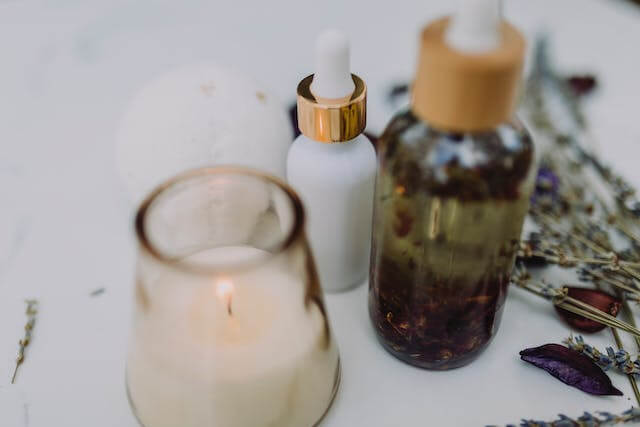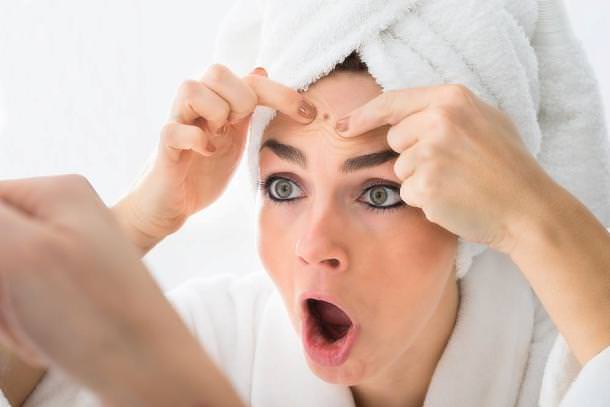Pimples on the forehead are a common skin concern that affects many people, impacting both appearance and confidence. This area, part of the T-zone, is prone to oiliness and breakouts. Hormonal changes, genetics, lifestyle choices, and particular products are just a few of the causes of these blemishes. In this article, we’ll explore the causes of pimples on the forehead, along with effective treatments and preventative measures. Our goal is to provide insights into managing this skin issue, helping you achieve a clearer, healthier complexion.
Causes of Forehead Pimples
Understanding the causes of forehead pimples, as highlighted in various studies, is crucial for effective treatment and prevention. Several factors contribute to the development of these blemishes:
- Hormonal Changes: Hormones play a significant role in the development of acne, including pimples on the forehead. Fluctuations during puberty, menstruation, pregnancy, and even stress can trigger the overproduction of oil in the skin glands, leading to pimples.
- Skin Type and Genetics: Individuals with oily skin types are more prone to developing pimples, as excess oil can clog pores. Genetics also play a part; if your family has a history of acne, you’re more likely to experience it too.
- Lifestyle and Hygiene Factors: Daily habits significantly impact skin health. Poor hygiene, such as not washing your face regularly or properly, can lead to oil and dirt buildup, causing pimples. Wearing hats or helmets that rub against the forehead can also trigger breakouts due to friction and sweat.
- Diet: While the link between diet and acne is still being researched, certain foods may exacerbate skin conditions. High-glycemic foods and dairy products have been noted in some studies to potentially increase the risk of developing acne.
- Use of Certain Products: Hair care products, makeup, and skin care products that are not non-comedogenic (meaning they do not clog pores) can contribute to the development of forehead pimples. It’s important to use products suitable for your skin type and to avoid those that are oil-based if you are prone to acne.
Preventative Measures

shutterstock
Preventing pimples on the forehead requires a combination of good skincare practices, lifestyle adjustments, and sometimes dietary changes. Here are key measures to consider:
- Maintain a Consistent Skincare Routine: Regular cleansing is crucial to remove excess oil, dirt, and sweat that can clog pores. Use a gentle, non-comedogenic cleanser twice a day. Incorporate exfoliation into your routine 1-2 times a week to remove dead skin cells, but avoid over-exfoliating as it can irritate the skin.
- Use Oil-Free and Non-Comedogenic Products: Choose skincare and makeup products labeled as ‘non-comedogenic,’ meaning they won’t clog pores. This is particularly important for products applied to the forehead, such as sunscreen and moisturizers.
- Manage Oil Production: If you have oily skin, using products that control oil production can help. Look for ingredients like salicylic acid, which can help keep pores clear.
- Adopt a Healthy Diet: While the relationship between diet and acne isn’t entirely clear, it’s believed that high-glycemic foods and dairy may trigger acne in some people. Incorporating more fruits, vegetables, whole grains, and lean proteins into your diet can promote overall skin health.
- Stay Hydrated: Drinking plenty of water helps keep your skin hydrated and healthy, potentially reducing the likelihood of pimples.
- Manage stress: High stress levels can trigger hormonal changes that may lead to acne. Engage in stress-reducing activities like exercise, meditation, or hobbies.
Home Remedies

Home remedies can be a gentle and natural way to address pimples on the forehead. Here are some effective treatments:
- Tea Tree Oil: Known for its anti-inflammatory and antimicrobial properties, tea tree oil can help reduce the redness, swelling, and inflammation of pimples. It should be diluted with a carrier oil (like coconut or almond oil) before application to avoid skin irritation.
- Aloe Vera: Aloe vera is famous for its soothing and anti-inflammatory properties. It can help heal pimples and also reduce scarring. Apply fresh aloe vera gel directly to the affected area and let it sit for about 30 minutes before rinsing.
- Honey: Honey, especially raw honey, has antibacterial properties that can help in reducing pimples. Apply a small amount of honey directly to the pimples, leave it for 20–30 minutes, and then rinse with lukewarm water.
- Green Tea: Rich in antioxidants, green tea can reduce inflammation and decrease sebum production. Apply cooled green tea to the affected area with a cotton ball or use a green tea bag as a compress.
- Apple Cider Vinegar: Diluted apple cider vinegar can act as an astringent, helping to dry out pimples and balance the skin’s pH. Mix it with water (1 part vinegar to 3 parts water), apply to the skin using a cotton ball, and rinse off after 5-10 minutes.
- Lemon Juice: The citric acid in lemon juice can act as an exfoliant and help reduce the appearance of pimples. Apply fresh lemon juice to the pimples and leave it on for about 10 minutes before rinsing. Be cautious, as lemon juice can make the skin sensitive to sunlight.
- Witch Hazel: Known for its astringent properties, witch hazel can help dry out pimples and reduce inflammation. Apply it with a cotton pad to the affected area.
Read More: Essential Oil for Itchy Skin: Instant Relief Remedies
Medical Treatments
For persistent issues, consulting a dermatologist is advisable. Prescription medications and professional treatments can offer more targeted solutions.
Lifestyle changes for long-term results
Altering your diet, incorporating regular exercise, and ensuring sufficient sleep can have a positive impact on your skin’s health in the long run.
Daily Skincare Tips
- Gentle Cleansing: Begin and conclude your day with a mild cleanser tailored to your skin type. Opt for a salicylic acid-based cleanser if you have acne-prone skin, as it can aid in managing breakouts. Avoid harsh scrubbing, which can irritate the skin and exacerbate pimples.
- Toning: Use a mild, alcohol-free toner after cleansing. Toner helps to restore the skin’s pH balance, remove any residual dirt or makeup, and prepare the skin for moisturizing.
- Moisturizing: Even if your skin is oily, don’t skip moisturizer. Choose moisturizers that are oil-free and non-comedogenic to keep your skin hydrated without blocking pores.
- Sun Protection: Apply a broad-spectrum sunscreen every day, even when it’s cloudy. Sun exposure can worsen acne and lead to hyperpigmentation and scarring. Choose a non-comedogenic sunscreen to prevent clogging of the pores.
- Exfoliation: Perform exfoliation once or twice a week to eliminate dead skin cells that could lead to clogged pores. Choose a gentle exfoliator; chemical exfoliants like AHAs or BHAs can be less irritating than physical scrubs.
- Avoid Heavy Makeup: When possible, let your skin breathe and avoid heavy, oil-based makeup products. If you do wear makeup, ensure it’s non-comedogenic and remove it thoroughly at the end of the day.
When to See a Professional
Severe acne symptoms require professional attention. This section discusses when to seek help and the benefits of doing so.
In conclusion, tackling pimples on the forehead requires a multifaceted approach. Remember, consistency and patience are key to achieving clearer skin.
FAQS
- What are the main causes of pimples on the forehead?
- Pimples on the forehead are primarily caused by hormonal changes, genetics, lifestyle factors (like stress and diet), use of certain hair and skincare products, and environmental factors. Excess oil production in the T-zone also contributes to the development of forehead acne.
- Can home remedies be effective in treating forehead pimples?
- Yes, home remedies like tea tree oil, aloe vera, honey, green tea, and apple cider vinegar can be effective in treating pimples on the forehead. These natural treatments offer anti-inflammatory and antimicrobial benefits. However, results may vary, and it’s important to do a patch test first to avoid skin irritation.
- What are some preventative measures to avoid getting pimples on the forehead?
- Preventative measures include maintaining a consistent skincare routine, using non-comedogenic products, managing stress, eating a balanced diet, staying hydrated, avoiding touching the face frequently, and changing beddings regularly.
- How important is diet in preventing forehead acne?
- Diet plays a role in skin health, though it may vary from person to person. Foods with high glycemic indexes and dairy products are sometimes linked to acne. Incorporating a diet rich in fruits, vegetables, whole grains, and lean proteins can promote better skin health.
- When should I seek professional help for pimples on my forehead?
- If home remedies and over-the-counter treatments do not improve your condition, or if you experience severe or cystic acne, it’s advisable to consult a dermatologist. Professional advice is crucial for severe cases and for tailoring treatments to your specific skin needs.
Remember, consistency and patience are key when dealing with skincare issues. While these FAQs cover general advice, individual skin concerns may require personalized treatment plans.
